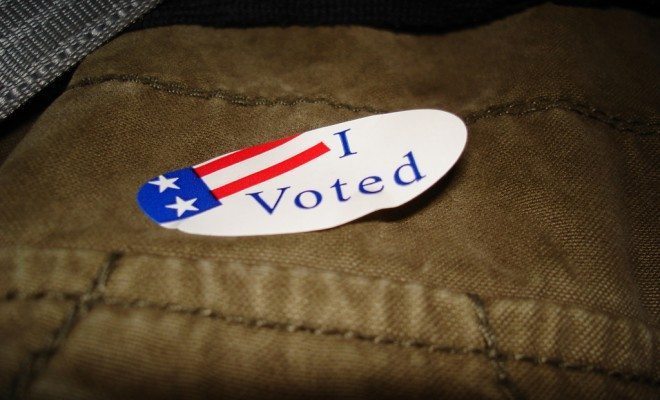 "day 121: super tuesday" courtesy of [Frank V. via Flickr]
"day 121: super tuesday" courtesy of [Frank V. via Flickr]
Elections
Super Tuesday 2016: What to Expect
While it feels like the presidential campaign started ages ago, and in many ways it has, a relatively small number of primaries and caucuses have actually taken place. But all of that is soon to change–Super Tuesday is here.
What is Super Tuesday?
Tuesday, March 1 gets this fun-sounding name because it is the day when more states hold primaries and caucuses than any other day in the primary season. While the race has been going at full steam for the past several months, only a small number of the total delegates have been formally awarded. So far, about 5 percent of the total delegates have been awarded for Republicans and less than 4 percent for Democrats. But that will change very quickly in the month of March. On Super Tuesday, there are 865 delegates up for grabs for the Democrats and 595 for Republicans. At the end of the day, 24 percent of the total delegates for Democrats will be awarded and about 30 percent for Republicans.
So Who Votes?
Both parties will hold caucuses or primaries in Alabama, Arkansas, Georgia, Massachusetts, Minnesota, Oklahoma, Tennessee, Texas, Vermont, and Virginia. Republicans will also hold a caucus in Alaska and Democrats will caucus in American Samoa and Colorado. Additionally, Democrats abroad will vote in sites across 40 different countries until March 8.
What to Expect: Democrats
While this election has been as unpredictable as ever, recent polls do give us some clues as to what we can expect on Tuesday. As it currently stands, the two frontrunners will seem positioned to build on their lead.
Hillary Clinton is coming off of two recent victories in Nevada and South Carolina, the latter of which she won by nearly 75 percent of the vote. While Sanders has proven to be a much stronger candidate than many anticipated, particularly when it comes to fundraising, Clinton still has a commanding lead when you look at pledged delegates and superdelegates.
The Super Tuesday electorate is also particularly favorable for Clinton. With an endorsement from the Congressional Black Caucus and high favorability ratings from black voters, we can expect a high turnout among black voters in many Super Tuesday states, where they make up a large percentage of Democratic voters. NPR has a nice illustration of Clinton’s advantage in its discussion of the ideal outcomes for both of the Democratic Candidates. According to NPR, an ideal scenario for Sanders would leave him up by just one delegate at the end of the day. But for Clinton, an ideal outcome would be leading by more than 150 of the Super Tuesday delegates. Put simply, if everything goes well for Sanders his campaign’s best hope is, essentially, to break even. It’s also important to note that Democrats allocate delegates proportionally based on the share of the popular vote or caucus precinct outcomes, which gives Sanders more opportunities to win delegates.
What to Expect: Republicans
On the Republican side, polls suggest that frontrunner Donald Trump will come away with a pretty significant victory. FiveThirtyEight has a rundown of the polls in Super Tuesday states, but Trump is generally the favorite in most states. One important exception is Texas, as Ted Cruz has managed to maintain a significant lead in his home state despite Trump’s nationwide surge.
Texas also has the most delegates up for grabs on Tuesday, as 108 of the state’s 155 delegates will go to the winners of its 35 Congressional districts while 47 of the state’s at-large delegates will be spread out among the top vote earners depending on their margin of victory. While a win in Texas would certainly be a big boost for Cruz, he has an uphill battle in most states.
While the delegate rules vary widely by state on Super Tuesday, there are more opportunities for Republicans to earn large chunks of delegates in one victory compared to the Democrat’s more proportional system. While that may not mean much, the important thing to take away is that the Republican frontrunner after Super Tuesday could come away with a pretty sizable lead.








Comments